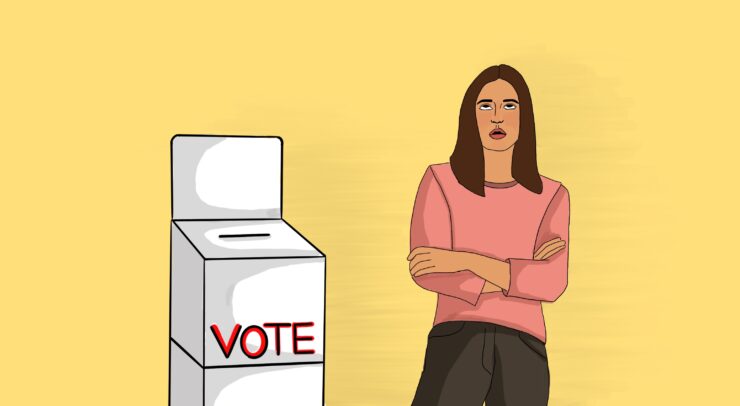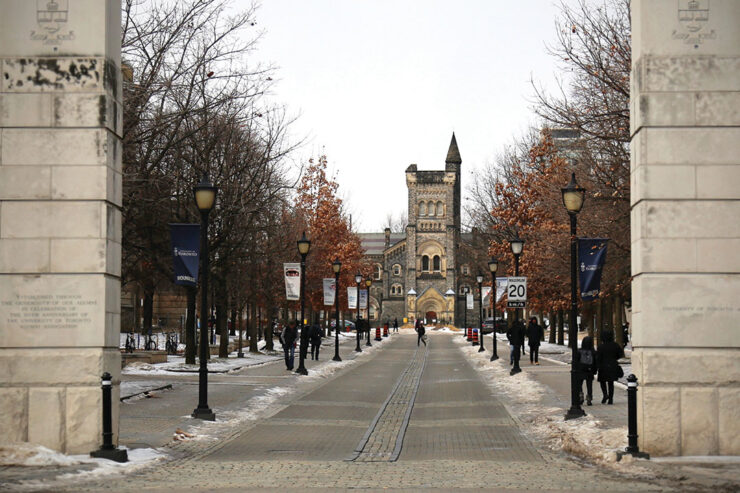Former U of O Student Senator wants to form committee with student leaders to push for positive change
This interview is part of our series of articles profiling the candidates for the University of Ottawa’s board of governors undergraduate student representative seat in the upcoming election that will be held from June 2-4. The University will email a ballot to students who are eligible to vote in the election and will announce the results on June 5. All eight candidates were asked the same set of questions for consistency. Answers have been edited for length and clarity. These questions were answered via Facebook.
The Fulcrum: Can you give me in a couple of sentences a short description of yourself?
Adam Walji: I came to the U of O from Vancouver for the French Immersion Bachelor of Commerce and Juris Doctor combined program, of which I am entering my fourth year.
I have dedicated a lot of my life to volunteering and giving back to the community; some experiences that have stuck with me are my role as Kamadia Saheb of the University of Ottawa’s Jamatkhana and my role as Student Senator.
My interests and hobbies include reading, baking, cooking, playing sports, and during this quarantine, I have made a special effort to step out of my comfort zone and try new things such as learning to play the ukulele and making TikToks (user: @adamwalji)!
The Fulcrum: Why are you running for a seat on the BOG?
AW: I am running for a seat on the BOG because I believe that we have an opportunity as students to make a positive change in our community.
Because of the current COVID-19 crisis, the University is continuously adapting and making changes that otherwise wouldn’t have been seen for years to come. I think because the University is in that change mode, now is the time for us as students to step up, as one united U of O student community, to make positive change happen.
I commit to advocating for students and bringing to the Board of Governor’s attention the growing concerns and issues faced by our student community.
The Fulcrum: What previous experience do you think will help you in this role?
AW: I have held a variety of leadership roles over the years both at our University as well as in the greater community. Most recently, I served as a Student Senator on the University of Ottawa Senate as the Faculty of Law representative, where I developed many connections with administration, staff, and students at various levels of our institution.
I have also served as Kamadia Saheb of the U of O’s Jamatkhana, where I was responsible for ensuring the spiritual, physical, and mental health and growth of the Ismaili community, particularly for students of the U of O and Carleton. This role not only gave me insight into many concerns in our student community, but it taught me to adapt and develop potential solutions to these issues. I believe that this skill will help me push for positive changes and the implementation of solutions to key problems that our student community is facing.
I have also served as a volunteer on the Ismaili Volunteer Corps for over 10 years, and in multiple roles on His Highness Prince Aga Khan Shia Imami Ismaili Council for Ottawa, as well as head coach for the Metro Minor Ball Hockey Association for the past couple of years.
The Fulcrum: In your own words, what is the role of the student rep on the BOG?
AW: The role of the student rep on the BOG is to, first and foremost, ensure that the student voice and perspective are not only heard but valued and considered. I believe the student rep should continuously communicate with the student community and leadership throughout his/her mandate in order to be able to bring forward the most accurate and precise perspectives to the BOG. It is not merely stating what the student community wants or feels, but rather working to convince fellow members of the Board of Governors to address the various concerns and implement solutions to those problems, whether they are surrounding mental health, discrimination, religious freedom, transparency, or any other issue.
The Fulcrum: Can you talk about your plans to make campus a better place?
My experience in the Senate was lonely in the sense that I was never connected to student leadership at the various levels, including many of my fellow student Senators, which I found to be problematic when it was time to offer the opinion and perspective of our student community.
Therefore, the first step I intend to take is to establish a committee consisting of student leaders from various levels in our student community, including Student Senators, UOSU officials, and members of the student governments of the multiple faculties. It is through this committee that myself and other members of student leadership will create a united front across all levels of governance and administration at the U of O to address and respond to the multiple issues and concerns that our community faces, from mental health to discrimination, transparency between students and administration, religious freedom, and more.
I will also work to lay the foundation for eliminating racism and discrimination in our community with pluralism. We have a diverse a U of O community, and merely coexisting with each other is not enough. It has become clear from incidents on our campus and around the world that there is an immensely large problem of discrimination in today’s world. I believe the best way to overcome this issue is to build bridges between the various races, cultures, traditions, religions, to educate each other, to learn from the best of each other, to work to help each other. Nelson Mandela once said that
“No one is born hating another person because of the colour of his skin, or his background, or his religion. People must learn to hate, and if they can learn to hate, they can be taught to love, for love comes more naturally to the human heart than its opposite.”
This is what inspires the idea of eliminating racism and discrimination with pluralism.
The Fulcrum: Can you talk about what you’ll do to address the University of Ottawa’s mental health crisis on the BOG?
Yes absolutely, this is a great question addressing one of the biggest issues on our campus.
Over the last year, the U of O community lost six students, and as I have repeatedly stated throughout my campaign, that is six students too many. When addressing the mental health crisis, two key issues come to mind. The first is that many students may not be aware of the resources to which they have access. The second is that the resources that we have on campus are not enough.
The Mental Health and Wellness Action Plan 2020 revealed the importance and urgent need to spread awareness of the various services that are available for students. As a student rep on the BOG, I will work actively with student leadership at all levels to spread awareness of the various mental health support programs and resources so that each and every student knows where to go if they need help. I will also lobby for each faculty to be more involved in spreading awareness of these resources on campus.
I also plan to advocate for increased investment in mental health services, including increasing the student limit of counselling appointments (currently eight) before having to enter the provincial system, to work to increase the budget to hire more mental health professionals and to promote the various resources to our student community.
I also take this opportunity to remind the student community that we, the student leadership, are here for you. Please reach out to me or any of us if you require any help or support. As I have mentioned multiple times in my campaign, we are all one U of O student family, and we are here to support one another.
The Fulcrum: Will you advocate for lowering tuition fees?
AW: Yes, I plan to advocate for lowering tuition fees.
I understand that the University needs to make money to operate, however, there are other ways to do so. Many members of our student community pay for their own tuition and asking a student to pay such a significantly large amount, in addition to their living expenses, can impose a lot of stress. Especially in times of difficulty and times of crisis, including the present COVID-19 pandemic, it can be even more difficult for students to gain the resources necessary to pay tuition and other expenses.
As you may be aware, the Board of Governors approves the annual budget, and I plan to stress the concerns of my peers in the student community, and strongly encourage the BOG to explore other options to increase revenue and lower student tuition.
The Fulcrum: Will you push for more accountability and the public release of the report on the Wiliston Mason carding incident?
I will definitely push for accountability and the public release of the report.
In the U of O community, no student should have to live in fear. Our campus and residences should be a safe space for all of us, where we can come together to pursue our academic goals without fear of being marginalized and discriminated against.
The reality of the situation is that a person that was employed to ensure the safety and security of our students in a U of O property did the opposite. The private security firm that was used was employed by the University, therefore the University must be held accountable. I am committing not only to pushing for more accountability and the release of the report on the Wiliston Mason carding incident, but also to encourage a significant investment to re-evaluate and repair all university policies that risk leading to further incidents.
We should be working harder towards preventing racist and discriminatory incidents and creating a safe campus rather than addressing incidents after they happen.
The Fulcrum: Why should students vote for you?
Now is the time for change.
With the University continuously having to adapt in response to the COVID-19 crisis, we students have an opportunity to take action, to push further for positive and beneficial changes in our community.
Given my experience in the University of Ottawa Senate and in other roles, I truly believe that I will be able to represent the student voice in an effective manner. I also believe that working with and continuously engaging with our student community is the best way to offer the student perspective to the Board of Governors.
I am committing to working actively with the student leadership committee, as well as with the student community at large, by making myself available for students to connect with and share their concerns, so that we can move forward and make progress for our student community.
Change represents an opportunity for growth, and I hope that students will trust me to represent their voice and to work for the benefit of all students in our community.






